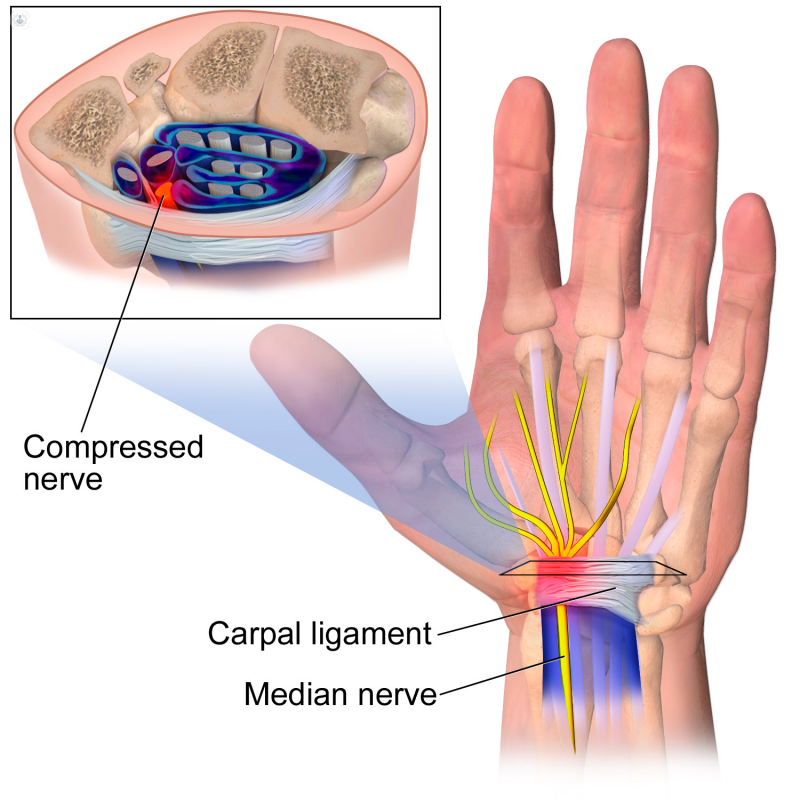

What is the median nerve?
The median nerve is one of the nerves in your arm, extending into the hand. It is the only nerve which passes through the carpal tunnel, one of the passageways that connects the hand to the forearm.
The median nerve controls the function and feeling in most of the fingers in your hand as well as part of your palm. The only fingers the median does not control is the little finger, and part of the ring finger, which are controlled by the ulnar nerve. The radial nerve is also responsible for some sensation in the hand.

How can the median nerve become injured?
The two most common places for the median nerve to become damaged or compressed are at the elbow and at the wrist.
A number of elbow injuries can affect the median nerve, including a fracture, or dislocation. When the median nerve is compressed at the elbow this is known as Pronator teres syndrome. This is often caused by repetitive turning grasping and twisting of the hand and wrist, often involved in jobs work heavy manual labour, weightlifting, or racket sports. Pronator teres syndrome can also be caused by body abnormalities, a tumour, or scar tissue.
At the wrist, compression is known as carpal tunnel syndrome. This is a common condition which tends to affect women more than men, but the exact cause is unknown.
What are the symptoms of a median nerve injury?
Symptoms can vary depending on the injury. Compression on the nerve can cause pain, particularly at night, a tingling sensation in your fingers, numbness and weakness in the hand.
Fracture, trauma or dislocation that has caused damage to the nerve can also cause numbness or weakness. You might find it difficult to turn the hand over, grip things, or move the thumb across the palm. If the nerve has been severely damaged this can lead to muscle wastage.
How is an injury to the median nerve treated?
When the median has been damaged by an acute injury at the elbow or wrist (such as a fracture or dislocation), the first line of treatment is to address the initial injury. Soft tissue injury can be treated with compression, applying ice, and keeping the arm elevated. A bone fracture which is unlikely to heal in the correct way, or which is putting pressure on the nerve, may require surgery.
Carpal tunnel syndrome can be treated very easily with carpal tunnel surgery. This is a quick procedure which releases space in the carpal tunnel for the median nerve, and provides immediate relief of symptoms.
Most treatment aims to prevent any further damage. Existing damage to nerves is likely to be permanent and you cannot always regain lost function or strength. Therefore it’s important to see an orthopaedic surgeon as soon as possible if you experience the symptoms above.
